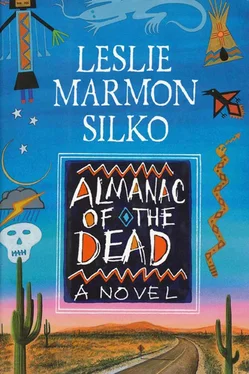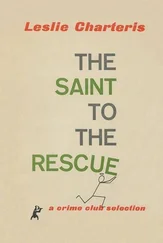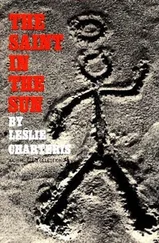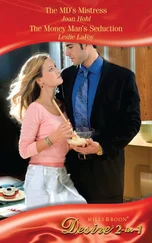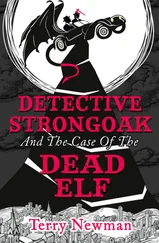As long as she is able three or four times a year to dream about him and to awaken feeling as if she has actually been with him, holding him close, she thinks the memories are holding. She had been afraid she might become too satisfied with these dreams. She had dreamed him newborn again in her arms. The ache of the loss that woke her did not recede as the day went on, but increased with every sniff of coke, with every hit off the joint, until she was tearing open cupboards looking for any kind of alcohol, any bottle of pills. She was staying in the penthouse on her lawyer’s advice. The lawyer wanted Seese. His wife had injured her back in a sailing accident. That was what he told her. Seese had never trusted him. Beaufrey once said the best lawyers were the best crooks. The lawyer liked the idea of a young mistress in an elegant penthouse overlooking a stretch of private beach outside La Jolla. Of course from the kitchen breakfast bar he could point out the high rise where the senior partners were preparing appellate briefs and corporate articles. She had quit opening his bills months ago. Beaufrey had taken David and left her with the apartment and enough money and drugs to kill herself. Beaufrey had left the country in a hurry with David. Before David could change his mind. She knows she had sex with the lawyer, but can’t remember a single time, nothing they did.
She tells Sterling she does not have much of a past or much to remember, but they both know she is holding out. He isn’t what she thought an Indian would be like. You don’t think of Pueblo Indians reading the Police Gazette and knowing all about John Dillinger. When Seese said this to Sterling, his wide face had been all a big smile, and she said, “That’s what I mean too,” pointing at his face and his mouth. “Oh,” he said, “you thought Indians didn’t ever smile or laugh,” and they were both laughing. Suddenly she stopped to remember how long it had been since she had laughed without a weight pulling from somewhere behind. With the lawyer she had laughed but knew that the feeling wasn’t true. He did not love her. Things would not work out.
Seese wonders how far back these things go. She has nightmares about diving into a pool that is too deep. Before she can manage to surface she is out of air. High above her she can see the sky and round, puffy clouds as she drowns. She remembers having the nightmare only twice before she had the baby. Both times it was the night before a math test in college. She got lost in the lines and equations; she could imagine any number of possibilities from all the signs and symbols. She read many things into them, many more than mathematicians had anticipated. Now she knows that all of it is a code anyway. The blue sky and puffy clouds seen through the deadly jade water of the nightmare pool was a message about the whole of creation. The loss of the child was another, more final message, or at least that was how it was translating — she was only just finding out that this was a translation, that the last morning she had held little Monte in her arms loving him perfectly — that had been an end too. When the drugs affected her in a certain way she was able to study the message calmly as if watching pebbles at the bottom of a stream; she could not feel the temperature of the water. She could feel nothing after that last morning. Dark green water had closed over her head.
Beaufrey and David had taken Monte or hired someone to take Monte, but then something terrible had gone wrong. This was the story she now believed because David had had her followed, had the phone tapped and had even telephoned himself, asking to hear his son cry. The lawyer had taken the call because she knew she would break down. But David had misunderstood, and next there had been the gunman; the reasoning, the lawyer later explained, was that once Seese was dead, the court would award custody of the baby to the father. But Seese did not have Monte.
In La Jolla she had been in the habit of standing for hours in front of the glass walls facing the ocean. But it could have been a blank wall. She stared and saw nothing — not the waves rising and falling on the beach or the banks of clouds on the southwest horizon. The wind had riffled the waves so they glittered like thousands of tiny mirrors — blinding reflections that left white afterimages before her eyes. The afterimages were in the shapes of teeth — incisors, canines.
After Monte had been kidnapped, Seese could not bear to look at shadows or shapes of clouds, patterns the dampness made on the beach sand, because instantly her brain gave them definite forms. She would see the toy giraffe in a cloud. She would see the print of a small hand left by the splash of a wave.
After the gunman had fired through her bedroom window, she had called the lawyer. She was not surprised he wanted her to go away, to start a new life. He was afraid of what might happen to himself and his marriage if she remained alone in the glass penthouse above the sea. He was right of course, and her doctor had suggested it too. She had seen the doctor about her eyes, and the problems she was having with the bright reflections almost blinding her. It was the cocaine mostly, he said, and as her psychiatrist he was prescribing a change. She had to leave the surroundings so familiar and once part of her life with the child. But she could not seem to leave the place although everything reasonable and sane told her she must. She could feel an animal circling inside her, pacing around and around in her stomach and chest. It was a fierce animal; it would not stop waiting or searching the place she had last seen her child.
She had not heard the shot. The gunman might have been four hundred yards away. Broken glass had streamed across the unmade bed like water. For an instant she had confused this with the blinding afterimages on her retinas. She had been too drunk and too high to be afraid. The lawyer came and searched but could find no bullet. For an instant he was about to accuse her of breaking the windows herself until she pointed out that the glass had collapsed into the room. A fury she had never known swept over her at that moment, and she turned on the lawyer. “Even as drunk as I am, I’m not that stupid,” Seese said. The lawyer had never suspected she was capable of such anger. He moved under the blow like a boxer trained to keep moving mechanically no matter how hard he was hit. Later Seese decided he’d come for a last fuck, that little gesture of comfort for a hysterical woman.
“It might not be Beaufrey and David,” he warned her, still recovering his balance. If he could have frightened her, he might have regained the advantage. “It could be the others,” he continued.
“We are even,” she said. Her voice was loud. She wanted them to hear that, so if it was them who had kidnapped her baby, Monte, them who were shooting, they would stop.
The lawyer began to say that he had it from reliable sources that X, Y, and Z had still not been paid for Beaufrey’s last big delivery from Mexico City. Seese stared at him while he made his pronouncements. He worked for all of the big players. She wanted to shove her.380 automatic into his mouth and pull the trigger until the clip was empty. “You know better than that!” she had screamed at him. “I’m out of it! I left before I had my baby!”
The lawyer was picking up slivers of glass from the pale lavender sheets. “I’ll stay with you tonight.” He was sitting on the edge of the bed still searching for bits of glass.
“No.”
“Come on, Seese, you aren’t being quite fair with me. I love you, and I want to help you.”
Seese knows what the Cuban maid is thinking. The Cuban maid had worked for the lawyer’s father for years. The old judge is connected with powerful people. The maid resents being there. She knows they kill hired help when they come to get the big cheese. The maid does not think much of this skinny blond woman. Small cheese. She does not think anyone will get killed except Seese. But the maid hates missing her evening television shows.
Читать дальше
